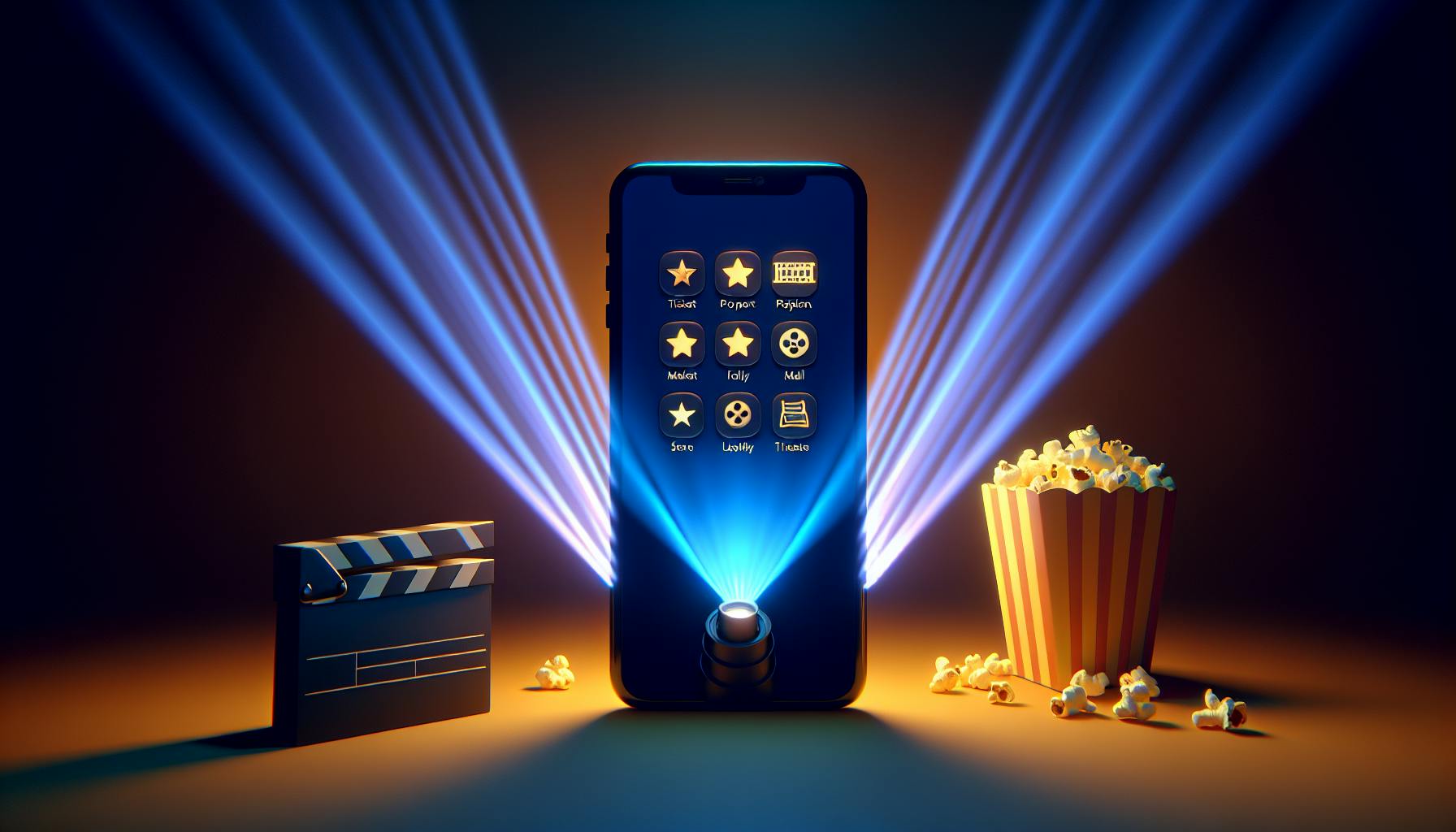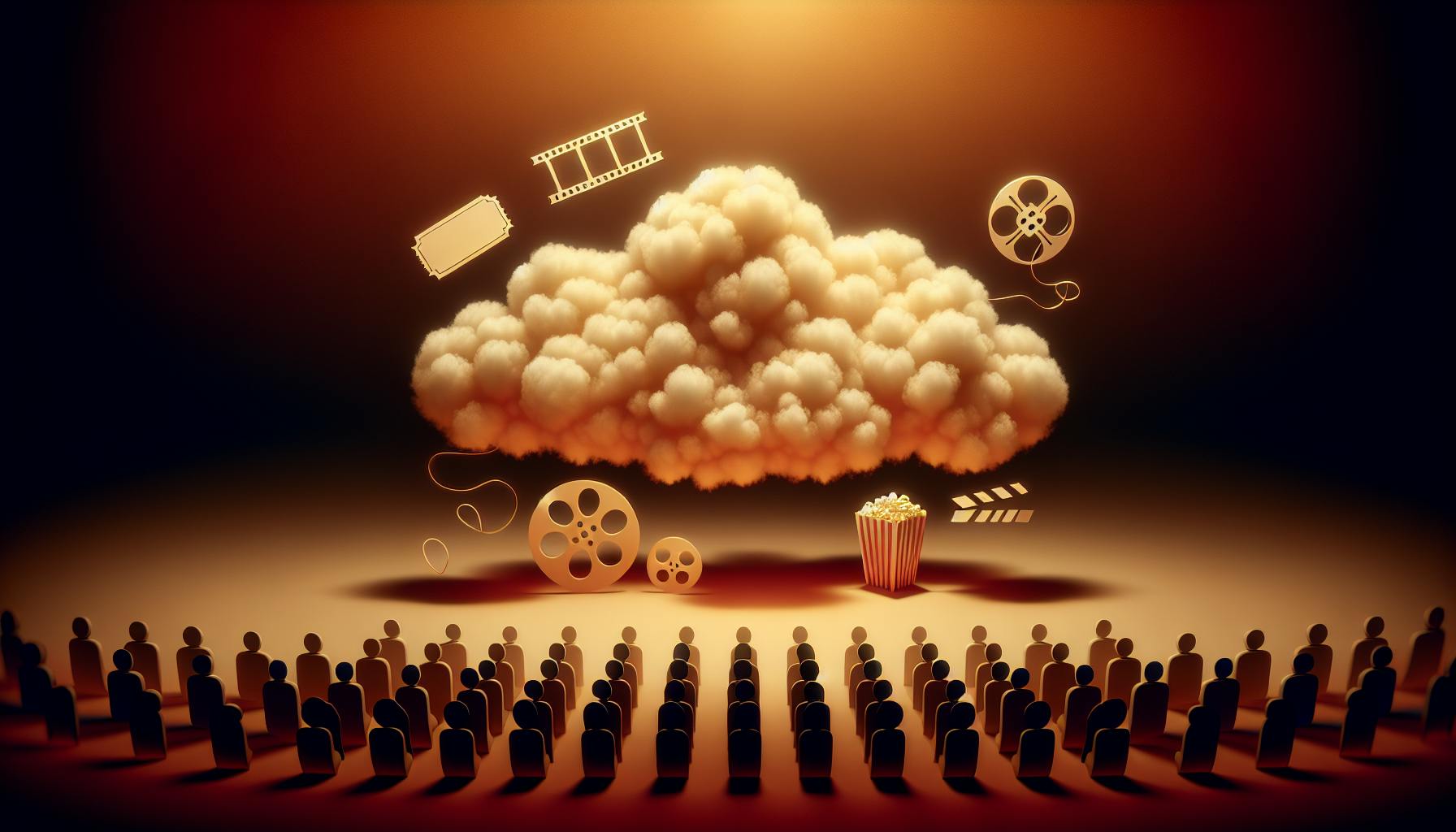Most theater owners would agree that managing ticket sales and customer data is a major challenge.
By investing in a dedicated theater ticketing software solution, you can significantly streamline operations, boost revenue, and deliver exceptional customer experiences.
In this comprehensive guide, we will overview the essential capabilities modern theater ticketing platforms should provide - from robust box office functionalities to data integrations - to help you make an informed software selection.
Introduction to Theater Ticketing Software
Theater ticketing software provides automated and streamlined solutions for selling tickets and managing customers for theaters, performing arts venues, and live events. This type of software aims to increase revenue, gain customer insights, automate manual processes, and improve the customer experience.
What is Theater Ticketing Software
Theater ticketing software centralizes ticketing, customer relationship management (CRM), promotions, access control, and analytics into a single integrated platform. Core capabilities include:
- Automated ticket sales across online, box office, and mobile channels. Customers can securely purchase tickets 24/7.
- Centralized customer database with detailed profiles, order history, and communication preferences.
- Targeted promotions and special offers to drive sales and encourage customer loyalty. Dynamic pricing and discounts can be applied.
- Robust reporting and analytics on sales, promotions, customer segments, etc. Provides data to optimize operations.
- Access control integration with ticket scanners and turnstiles for fraud prevention. Ensures only valid ticket holders can enter venues.
Benefits for Theaters and Venues
Theater ticketing software delivers quantifiable benefits including:
- Increased revenue by selling more tickets across channels and reducing fraud. Average 10-15% revenue boost in the first year.
- Valuable customer insights to better market to audience segments based on past purchases, demographics, etc.
- Automation of manual processes like order processing, customer service, access control checks. Improves efficiency.
- Enhanced customer experience with quick and convenient ticket purchasing, timely communication, and frictionless entry.
For example, La Jolla Playhouse saw a 12% increase in online ticket sales and 19% increase in overall revenue after implementing new ticketing software.
Essential Features to Evaluate
When researching options, key features to look for include:
- Omnichannel sales across website, box office, kiosks, mobile apps. Should sync in real-time.
- CRM and database with profiles, segmentation, targeted email campaigns.
- Dynamic pricing and promotions to drive sales through discounts, bundles, upsells.
- Robust reporting and analytics on all aspects of operations - sales, customers, concessions, etc.
- Access control integrations with scanners and hardware for fraud prevention and queue management.
- Third-party app and POS integrations to connect with existing infrastructure.
Carefully evaluate features and select software aligned to your business goals.
Which software is used for ticket booking?
Some of the best ticket management software and systems for theaters include:
-
AudienceView - A fully integrated system for ticketing, fundraising, marketing, reporting, and more designed specifically for performing arts organizations. It offers different packages based on organization size and needs.
-
Spektrix - A customizable cloud-based ticketing and marketing platform made for arts and culture organizations. It includes tools for online sales, in-person sales, email marketing, patron management, and analytics.
-
Universe - A white label ticketing platform focused on flexibility and customization for venues. It allows full control over branding and provides tools for access control, event management, marketing, and more.
-
TicketSpice - An affordable and easy-to-use ticketing and event management platform. It offers custom branding, automated event setup, promotions, access control, and real-time sales data.
-
Ticketbud - A simple, low-cost ticketing solution focused on small to midsize venues. It provides an online box office with custom branding, promotions, discounts, reports, and tools for access control and capacity management.
The right theater ticketing software provides essential functionality like customizable online ticket sales, dynamic pricing and promotions, patron records, access control, real-time sales reporting, and marketing tools. Choosing a system that aligns with your budget, size, and specific needs is key for streamlining operations and boosting revenue.
What is the best online ticketing system?
When it comes to choosing an online ticketing system for your theater, there are a few key features to look for:
Ease of Use
The system should have an intuitive interface that makes it simple for both you and your customers to navigate. Things like setting up events, customizing the look and feel, generating reports, and accessing data should be straightforward.
Some top systems praised for usability include:
- Ticketbud - Very customizable, easy to create events and promotions.
- Ticket Tailor - Clean, simple dashboard to manage events and sales.
- Purplepass - User-friendly for both event managers and attendees.
Flexible Pricing and Seating Plans
You'll want the ability to configure all types of price levels, discounts, and special offers. Dynamic seating charts that update in real-time are also extremely useful.
Systems like RegFox and TicketSpice enable all kinds of price rules and seating plans for theater performances.
Robust Reporting and Analytics
Important sales data like real-time reports on ticket sales, registration, and revenue help you make informed decisions about event planning and marketing.
10 ThunderTix and Ticketleap have powerful reporting dashboards to track all key event metrics.
Reliable Support
Problems can happen, so 24/7 customer service via phone, email, and chat provides peace of mind. Many customers praise TicketSource and Eventix for responsive, dependable support.
Evaluating your theater's specific needs and priorities will determine which system checks all the boxes. But overall, choose a modern, full-featured online ticketing platform tailored to theaters and performing arts venues.
What is the best customer service ticketing system?
The best customer service ticketing system for most businesses is Zendesk. Zendesk offers a full-featured yet user-friendly platform for managing customer support tickets.
Here are some of the key benefits of using Zendesk as your customer service ticketing system:
-
Intuitive interface: Zendesk has a clean, modern interface that is easy for agents to navigate. This helps customer service teams resolve tickets faster.
-
Omnichannel support: Zendesk integrates with phone, email, social media, live chat, and self-service options. This allows customers to get support however they choose.
-
Custom workflows: You can set up automation rules and SLAs to route different types of tickets to the right teams. This ensures a quick first response time.
-
Reporting and analytics: Zendesk provides over 80 out-of-the-box reports to help you identify trends and optimize support workflows over time.
-
Integration ecosystem: Zendesk offers 350+ app integrations with tools like CRM, project management, payment systems and more. This allows you to centralize multiple systems into one platform.
While Zendesk leads in usability and flexibility, platforms like Freshdesk, Front, and Jira Service Desk also offer capable help desk ticketing systems. Choosing the right one depends on your business needs, budget, and use case. Most systems offer free trials to test out.
What is the ticketing tool widely used?
Theater ticketing software is essential for cinemas and performing arts venues to sell tickets and manage events efficiently. Some of the most popular and widely used theater ticketing software includes:
AudienceView - A robust SaaS solution used by hundreds of arts organizations worldwide. It offers customizable packages for different needs:
- AudienceView Professional - For small to mid-sized venues. Pricing starts at $300 per month.
- AudienceView Unlimited - For larger venues and university performing arts centers. Pricing starts at $700 per month.
- AudienceView Campus - Specifically designed for college and university venues. Pricing starts at $800 per month.
Other well-known theater ticketing software includes:
- TheaterMania - Cloud-based system with strong CRM features. Prices start at $149 per month.
- WhatsOnStage - Used widely across Europe. Subscription fee plus per ticket charge.
- Agile Ticketing - Simple, affordable option. Starts at $39 per month.
When evaluating systems, key aspects to consider include:
- Ease of use - Both for admins and customers buying tickets.
- Flexibility - Ability to customize to your unique needs.
- Integration - How well it works with your other systems.
- Cost - Upfront fees, monthly charges, per ticket fees.
- Features - CRM, dynamic pricing, custom branding, reporting, etc.
Choosing the right ticketing software is crucial for venues to maximize ticket sales, gain insights into audience, and elevate the customer experience.
sbb-itb-b1b0647
Top Picks for Best Theater Ticketing Software
Theater ticketing software is essential for performing arts venues to efficiently manage ticket sales, promotions, seating charts, and customer data. As the needs of venues vary greatly based on size and types of events, it's important to choose a solution that aligns with your operational requirements. Here's an overview of some of the top options for different types of theaters and performing arts centers.
AudiencesView Professional for Medium-Sized Venues
For mid-sized venues that host multiple types of events throughout the year, AudienceView Professional offers a robust set of features tailored for this segment.
Some key aspects that make it a top choice include:
- User-friendly interface optimized for medium volume ticket sales, with intuitive dashboard to track real-time sales and generate custom reports.
- Flexible event and promotion management tools to configure variable pricing, discounts, special offers, and more.
- CRM features to manage subscriber data, targeted email campaigns, and loyalty programs.
- Robust box office and POS solutions for on-site and online sales across desktop and mobile.
With customizable packages and pricing based on your specific needs, AudienceView Professional brings enterprise-level capabilities to midsized arts centers and theaters.
Agile Ticketing Solutions for Dynamic Pricing
For venues that want to implement variable or dynamic pricing to maximize ticket revenues, Agile Ticketing has some of the most advanced capabilities.
Key features enabling effective dynamic pricing include:
- Real-time analytics to track demand and adjust pricing accordingly.
- Automated rate adjustments based on pre-set business rules.
- Differential pricing for premium seats or high-demand shows.
- Personalized offers to incentivize purchases for slow selling shows.
With dynamic pricing, theaters can yield upto 20% higher revenue by aligning ticket costs to market demand. Agile Ticketing provides the tools to make this possible without complex manual oversight.
TicketPeak and TicketSpice: Affordable Options for Small Theaters
For small theaters, performing arts groups, comedy clubs, and other venues with relatively simple operational needs, TicketPeak and TicketSpice offer affordable and easy-to-use solutions.
Some reasons they are ideal for small venues:
- Low monthly cost packages to fit limited budgets.
- Lean feature set focused on core ticket sales functionality.
- Easy self-service model without extensive support requirements.
- Scales to handle increased sales volumes as you grow.
While not equipped for large multi-event enterprises, TicketPeak and TicketSpice deliver solid bang-for-buck for small venues looking for basic but modern ticketing software.
Accesso ShoWare and Spektrix for Large-Scale Operations
On the enterprise end of the spectrum, accesso ShoWare and Spektrix provide heavy-duty ticketing platforms designed for huge venues, multi-site theater chains, and massive event series.
Some examples of their marquee capabilities:
- Handle millions of tickets and peak traffic without breaking a sweat.
- Complex access control, entitlements and security profiles.
- Tight box-office, website, kiosk, and POS integration.
- Data analytics on steroids - machine learning and AI-driven.
- High-touch professional services and support.
For mega theaters like The Kennedy Center or massive theatrical series like Broadway Across America, accesso ShoWare and Spektrix offer the performance, flexibility and resilience required for large-scale operations.
Evaluating theater ticketing software requires aligning solutions to your specific operational maturity, budget, and functionality needs. The options compared above are great choices for different types and sizes of performing arts venues and events.
Choosing Performing Arts Ticketing Software
Selecting the right ticketing solution is crucial for performing arts venues to efficiently sell tickets and provide exceptional customer experiences. Here are some key considerations when evaluating options:
Understanding Box Office Software Needs
Core functionalities to look for include:
- Seat selection - Patrons need to easily select their preferred seats/sections during ticket purchases.
- Subscription management - Many performing arts patrons purchase subscription packages across seasons and need accounts to manage these.
- Discount codes - Important for selling group tickets or offering promotions.
- Gift certificates - Popular for patrons to gift tickets.
- CRM features - Help track customer data to nurture relationships over time.
Prioritizing these box office capabilities ensures efficient sales and organization behind-the-scenes.
Defining Must-Have Capabilities for Performing Arts
Beyond standard ticketing, performing arts venues need specialized support for:
- Dynamic pricing - With fluctuating demand, adjustable pricing maximizes revenues.
- Production management - Scheduling performances, tracking budgets, managing casts/crews.
- Membership management - Administering exclusive benefits for loyal patrons.
- Email/mail campaigns - Promoting upcoming shows to subscriber lists.
Evaluating solutions that cater to these unique needs is advised.
The Role of AudienceView Unlimited in Performing Arts
With robust tools for flexible pricing, production oversight, memberships, and marketing, AudienceView Unlimited delivers advanced capabilities suited for large performing arts institutions.
Key highlights include:
- Managing complex season subscriptions with discount options
- Detailed reporting and analytics on sales, promotions, attendance
- Custom packages and upsells during ticket purchases
- Automated membership renewals with exclusive perks
- Targeted email campaigns with patron segmentation
For feature-rich and configurable performing arts management, AudienceView is an advisable choice.
Budgeting for Performing Arts Ticketing Solutions
Costs vary based on:
- Number of users/administrators
- Size of venue(s)
- Volume of customers/data
- Level of capabilities needed
Work with vendors to align software costs with financial resources. Prioritize must-have features over unnecessary tools to optimize value. Consider scalable solutions that grow with evolving needs.
Implementing New Theater Ticketing Software
Implementing a new theater ticketing software can seem daunting, but following a structured rollout process helps ensure a smooth transition. Here are key steps when adopting new ticketing software:
Data Migration and Testing
Migrating data from old systems is critical for continuity. Key data to migrate includes:
- Customer information (names, emails, purchase history)
- Event details (dates, times, locations)
- Previous ticket sales records and pricing
Conduct thorough testing across all system functions using real data to uncover issues before launch. Common test cases include:
- Simulating ticket purchases for upcoming events
- Checking accurate customer data migration
- Testing integration with payment gateways
- Confirming expected revenue reporting
Fix any bugs or issues prior to launch.
Training Staff and Educating Customers
Get staff onboard and excited about the new system by:
- Holding on-site workshops to guide staff through key software functions
- Creating help documentation and user manuals they can reference
- Maintaining open dialogue to address concerns and feedback
For audiences, communicate software changes via:
- Website popups and banners
- Social media posts and event pages
- Email newsletters about new features
- Update voicemail with new box office information
Go-Live Procedures and Support
Follow best practices during launch week to facilitate the transition:
- Maintain legacy systems at 50% capacity to fail-safe
- Have dedicated on-call technical support for staff during the switch
- Monitor user feedback channels closely and rapidly resolve issues
- Collect staff and customer input to guide future software optimizations
Careful planning ensures theater ticketing software upgrades successfully drive sales growth through improved customer experiences. Evaluating processes at each milestone guarantees systems perform as expected well into the future.
Best Practices for Ongoing Success with Theater Ticketing Systems
Leveraging Analytics for Insights
Theater ticketing software like TheaterMania and AudienceView provide robust analytics dashboards to track key metrics. Theater owners should regularly analyze data on:
- Attendance forecasts: Review upcoming show attendance projections to optimize pricing, staffing, concessions planning.
- Customer segmentation: Identify VIP patrons, student groups, senior citizens visiting the theater to tailor promotions and loyalty programs.
- Campaign performance: Assess email, social media, search ad campaign results to double down on best performing channels and creative.
Setting up custom reports and alerts around these metrics allows theaters to spot trends and opportunities early. Data-backed decisions can boost revenue from ticket sales and concessions.
Expanding Integrations and Automations
Integrating complementary systems like donations, concessions, surveys with the core theater ticketing software unlocks powerful automations:
- Automatic renewal notices to subscribers before season ticket packages expire.
- Win-back offers if a customer hasn't visited in 3+ months.
- Post-show email surveys about the experience.
- Concession upsell offers sent with the tickets.
This reduces manual efforts for the theater staff while providing a seamless, personalized experience for patrons. New integrations should be thoroughly tested before rolling out to customers.
Regular Training and Feedback Cycles
With any new software system, there is a learning curve. To drive higher theater ticketing software usage and user satisfaction:
- Schedule refresher trainings every quarter to share new features, shortcuts, and best practices.
- Actively solicit feedback from staff via surveys, meetings.
- Monitor adoption metrics like login rates, feature usage rates.
- Address issues through additional training, workflow tweaks, system enhancements.
Continual training and gathering user feedback is key to smoothing out issues, adapting workflows, and improving system utilization over time.
Conclusion and Key Takeaways
Modern theater ticketing software provides essential capabilities to streamline sales, engage audiences, and make data-driven decisions. As summarized in this article, key features include:
- Intuitive interface for both staff and customers to easily navigate the system
- Robust reporting and analytics to uncover insights and optimize operations
- Custom branding and theming to align with your cinema's identity
- Multi-channel sales across box office, web, mobile, and more
- Targeted promotions to boost attendance during slow periods
- Customer relationship management to build loyalty and repeat business
To recap, today's solutions facilitate simplified ticketing, dynamic pricing, seamless payments, and omnichannel engagement. By clearly defining your needs, carefully evaluating options, methodically rolling out new technology, and continually optimizing its use, you can achieve transformative returns on investment. Modern ticketing software provides the capabilities to sell more tickets, enhance moviegoer experiences, and drive revenue growth.


